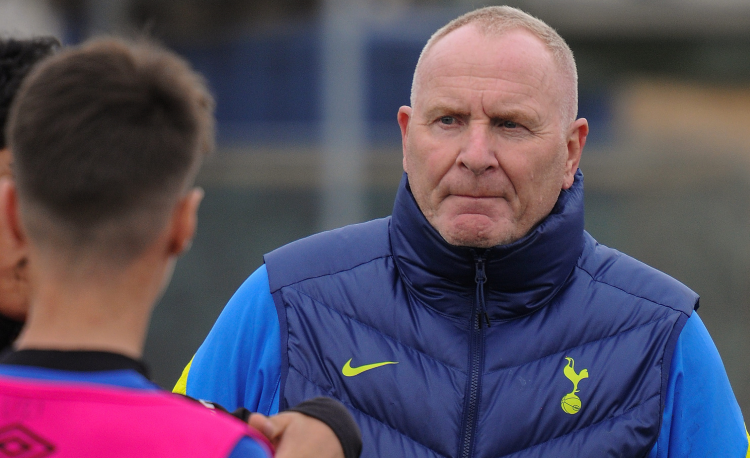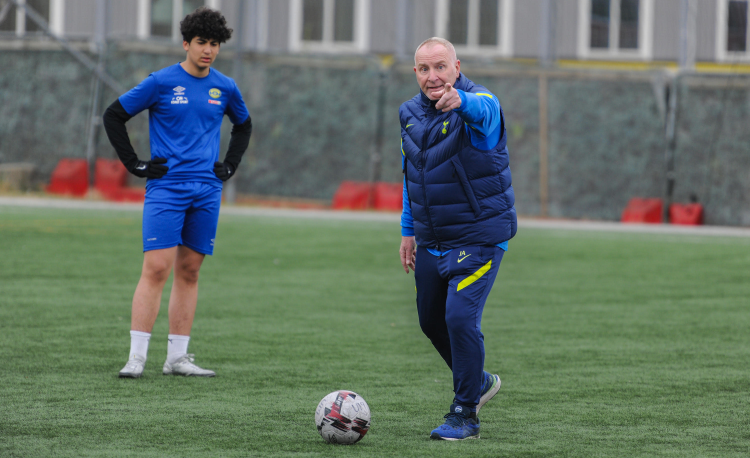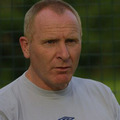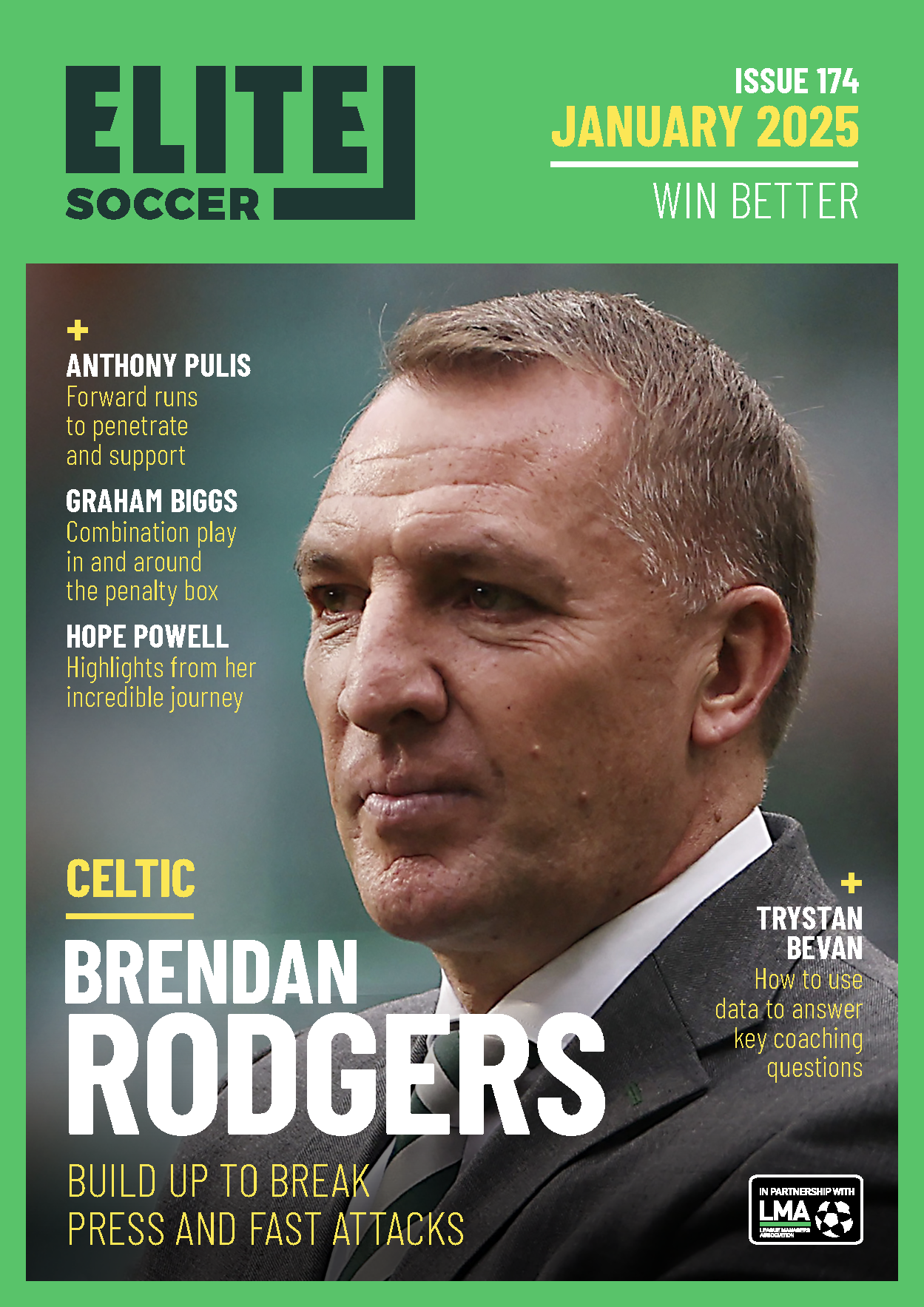You are viewing 1 of your 1 free articles
Lessons from working in an elite academy
John Allpress, former Tottenham Hotspur assistant head of academy player and coach development, shares six things needed to work in an elite environment
Coaching in an elite academy is a privileged position. It’s one which comes with a lot of challenges and responsibility, rewarded by an opportunity to have real positive influence and impact in the game.
Getting a role in an academy, then keeping it, requires a high level of dedication, consistency
and will to learn.
Here are six lessons I learned working in an elite academy.
1 - It’s not for everyone
The standards and expectations at top academies are high. Working in a top academy is specialised and relentless. It is more than coaching football. It is player-focused rather than results driven. It’s about teaching players what to expect and what’s expected of them technically, tactically, physically and mentally.
To do this effectively, coaches – or player developers – must first and foremost be leaders and influencers, promoting elite and high-performance behaviours, helping youngsters to develop and sustain the character and attitude they will need to give them a fighting chance of getting – and then keeping – a job in football.
More importantly, it’s also preparing them for the disappointment of failure and giving them the support to rebuild their ambition to go again either in the game, or outside of it.
The character and attitude we need as staff is born of what we all care about as a collective, our purpose, the standards we set ourselves and others, our sacrifice, commitment to the cause and the tough decisions we have to make under pressure.
It is, however, primarily defined by how we make our players feel while they are in our care and the contribution we make to their development as people and players to ensure, to the best of our ability, that their academy experience is positive and enjoyable.
2 - Be consistent and caring
Youngsters hate rules. What they hate more, though, is no rules. They need to know where they stand. They don’t get to where they need to be by accident; they get there by design.
Consistency is the key, and this comes from culture and how you go about things. Youngsters like simplicity. Starting on time is a simple way to establish how things are going to work when they are with you. Never wait for stragglers. You can be understanding of latecomers yet still start on time. If you don’t it sends the wrong message: your start time isn’t really your start time and it’s okay to be late.
You will talk to the people you warm to seven times more than the people you don’t. You can’t help it and they will know. Its how human beings work. The job of the coach is to be fair and care for everyone in the group as long as they are putting in a shift and trying their best.
Things are easier when someone you do warm to deserves a start or a pat on the back. What is more important is when the youngster you don’t warm to deserves it. It is vital they get their start or pat on the back, too. That message is very powerful. It’s about fairness. The players will know who you warm to and who you don’t, and they will also notice how you treat everybody.
If things are fair, you are much more likely to get everyone’s trust and respect.
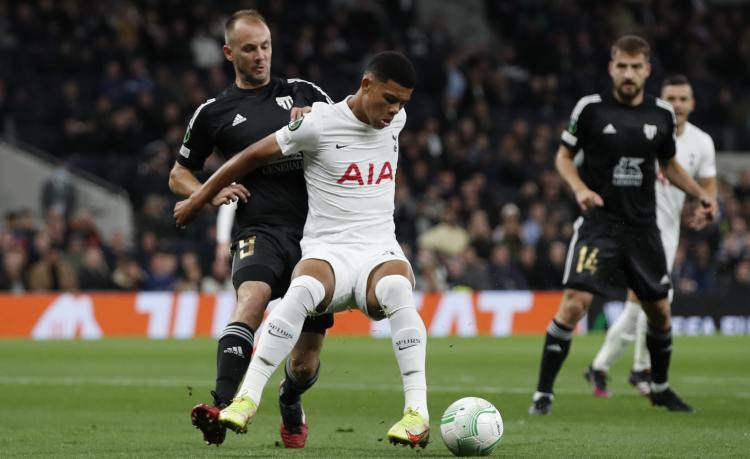
3 - Be yourself
Working in an academy means you are there to help young players get a job in the game and to support the ones who fall short as best you can.
Being authentic is vital in any professional environment and positioning yourself in a place where you can be most useful is important. Your experiences in football will usually determine this. Scholars and young professionals need people who have been on the journey. People whose experiences can be influential and support players’ practice and learning. The same goes for the foundation and youth development phases.
Egos need to be parked. Liking the thought of being the under-18 coach isn’t good enough. Having the experience, knowledge and commitment to get there is.
This does not mean that people without a background in professional football cannot work with older players. Far from it. But those of us who were part-time footballers need to work doubly hard to gain the knowledge and knowhow required to be helpful and effective in those phases.
4 - Never promise what you can’t deliver
Becoming a professional footballer at any level of the game, and then having a career over any length of time is a really tough assignment. The odds are stacked heavily against most of the youngsters in the academy and very few have the right stuff.
A good number will gain scholarships and have a productive youth career but the numbers going on to perform consistently in first teams, particularly at Premier League and Championship clubs, are pitifully few.
Honesty is always the best policy when building trust. As coaches, we cannot promise players careers. Yet, within this tough and challenging environment, there are certain things we can promise. These are:
- Giving players opportunities to show what they can do in training and on match days
- Giving players the chance to develop technically, tactically, physically and mentally
- Giving players regular updates on their progress
- Providing a positive learning environment for the players and their parents
- Supporting players with well-motivated, qualified, expert staff in all phases of the academy
- Looking after players when they are injured, over the long or short term
- Giving players access to best practice, advice and a top-class training facility
- Providing players with top-class kit and equipment to aid their development
- Supporting players’ academic programme if they join as scholars
- Supporting players as much as possible if they are released from their academy agreement.
All academies can do is provide excellent learning opportunities, coupled with consistent messages so that those youngsters who stick with the programme will have a better chance of awakening their elite traits and making a go of things.
“It is critical to say regularly out loud to the group, in training and on match day, that you would rather that they made a mistake than didn’t try anything”
5 - Put winning in perspective
To work in an academy long term, you have to be prepared to learn as much as you can about the game and how to teach it effectively to young players. This needs to be achieved formally through qualifications and continuing professional development, or informally with colleagues or friends who work in the industry, or by seeking out inspiration from other fields or sports.
More importantly, winning must be put in perspective in an academy setting. Too much emphasis on getting a result may compromise your ability to develop players’ match play understanding and decision making, as well as their willingness to push the boundaries of what they know and can do.
It may also make it more difficult to assess their attitude and character. It is much easier to play when you are 3-0 up and cruising, than it is when you are losing and you need to see who can step up to the plate when things are tough and the team is floundering.
Sometimes players need to experience different positions to aid their development, and this could compromise your chances of getting a positive result while they practice and learn.
This does not in any way mean you accommodate a less-than-positive attitude on match day. Players must always bring their game face no matter what the starting line-up or bench looks like. Attitude is a decision. You must always make it as hard as you can for your opponents – win, lose or draw.
6 - Warm to young players and their mistakes
It is crucial to create an environment where youngsters are willing to push the boundaries of what they already know and can do. They need to get out of their comfort zones, especially on a match day where their perception of how a mistake is viewed is more damning.
Players need to know their coach has their back. It is critical to say regularly out loud to the group, in training and on match day, that you would rather that they made a mistake than didn’t try anything. It’s so important that they have the courage to go for things, rather than just be on the pitch playing things safe. That mood music is created and sustained by the coach and how they behave when mistakes are made.
This does not mean that mistakes are not reviewed or discussed. Analysis is an important tool and a key component for improvement helping individuals to go home better players. Things just have to be handled in the right way and looked on as learning opportunities and chances to get into credit next time.
Editor's Picks
Using the goalkeeper in build-up play
Pressing principles
Intensive boxes drill with goals
Penetrating the final third
Creating and finishing
My philosophy
Pressing initiation
Compact team movement
Defensive organisation
Coaches' Testimonials

Alan Pardew

Arsène Wenger

Brendan Rodgers

Carlos Carvalhal

José Mourinho

Jürgen Klopp

Pep Guardiola

Roy Hodgson

Sir Alex Ferguson

Steven Gerrard
Coaches' Testimonials

Gerald Kearney, Downtown Las Vegas Soccer Club

Paul Butler, Florida, USA

Rick Shields, Springboro, USA

Tony Green, Pierrefonds Titans, Quebec, Canada
Join the world's leading coaches and managers and discover for yourself one of the best kept secrets in coaching. No other training tool on the planet is written or read by the calibre of names you’ll find in Elite Soccer.
In a recent survey 92% of subscribers said Elite Soccer makes them more confident, 89% said it makes them a more effective coach and 91% said it makes them more inspired.
Get Monthly Inspiration
All the latest techniques and approaches
Since 2010 Elite Soccer has given subscribers exclusive insight into the training ground practices of the world’s best coaches. Published in partnership with the League Managers Association we have unparalleled access to the leading lights in the English leagues, as well as a host of international managers.
Elite Soccer exclusively features sessions written by the coaches themselves. There are no observed sessions and no sessions “in the style of”, just first-hand advice delivered direct to you from the coach.
